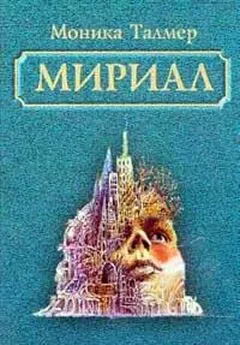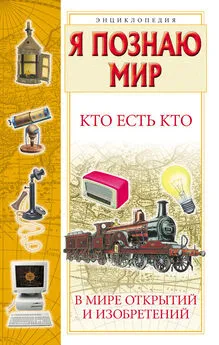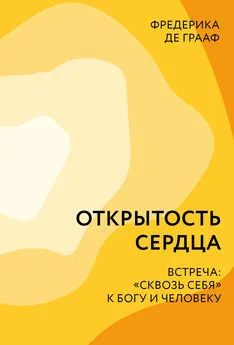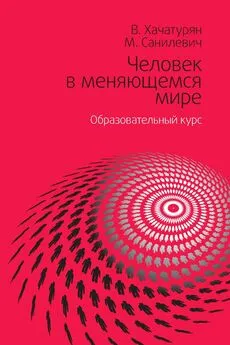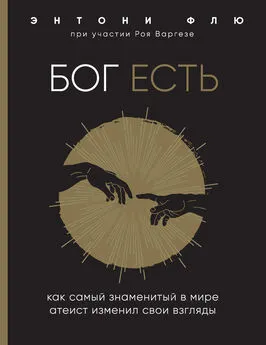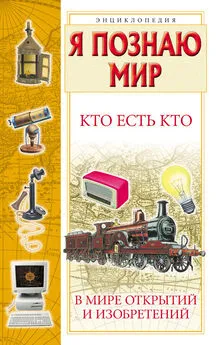Биньямин Файн - Нищета неверия. О мире, открытом Богу и человеку, и о мнимом мире, который развивается сам по себе
- Название:Нищета неверия. О мире, открытом Богу и человеку, и о мнимом мире, который развивается сам по себе
- Автор:
- Жанр:
- Издательство:Мосты культуры / Гешарим
- Год:2011
- Город:Иерусалим
- ISBN:978-5-93273-33
- Рейтинг:
- Избранное:Добавить в избранное
-
Отзывы:
-
Ваша оценка:
Биньямин Файн - Нищета неверия. О мире, открытом Богу и человеку, и о мнимом мире, который развивается сам по себе краткое содержание
Профессор Тель-Авивского университета Биньямин Файн – ученый-физик, автор многих монографий и статей. В последнее время он посвятил себя исследованиям в области, наиболее существенной для нашего понимания мира, – в области взаимоотношений Торы и науки. В этой книге автор исследует атеистическое, материалистическое, светское мировоззрение в сопоставлении его с теоцентризмом. Глубоко анализируя основы и аксиомы светского мировоззрения, автор доказывает его ограниченность, поскольку оно видит в многообразии форм живых существ, в человеческом обществе, в экономике, в искусстве, в эмоциональной жизни результат влияния лишь одного фактора: материи и ее движения. Неверие, секулярный взгляд на мир, основанный на обожествлении природы и ее законов в качестве первоисточника всего, – это и есть современное идолопоклонство, борьбу с которым автор ставит своей основной задачей.
Перевод: К. Александер
Нищета неверия. О мире, открытом Богу и человеку, и о мнимом мире, который развивается сам по себе - читать онлайн бесплатно ознакомительный отрывок
Интервал:
Закладка:
Шварц, Моше. От мифа к Откровению. Тель-Авив, 5735.
Шалит, Даниэль. Земля и небо. Иерусалим: Издательство Твай, 2009.
Шолем, Гершом. Глубинный смысл. Тель-Авив: Ам Овед, 1990.
Albert Einstein: Philosopher-Scientist, the Library of Living Philosophers,
Ed. By P.A. Schilpp, Tudor Publish., New York, 1951
Armstrong D.M.: A Materialist Theory of the Mind, Routledge & Kegan
Paul, London, 1968
Barrow J.D. & Tipler F.J.: The Anthropic Cosmological Principle, Oxford
University Press, Oxford New York, 1996
Bell J.S.: Speakable and unspeakable in quantum mechanics, Cambridge
University Press, Cambridge, 1993
Berkovits E.: God, Man and History, Shalem, Jerusalem, 2004
Berkovits E.: Faith after the Holocaust, New York, 1973
The BORN-EINSTEIN Letters, Correspondence between Albert Einstein
and Max and Hedwig Born from 1916 to 1955 with commentaries by MAX
BORN; Macmillan, London, 1971
Buber M.: I and Thou, Collier Books, New York, 1958
Burtt E.A.: The Metaphysical Foundations of Modern Science, Atlantic
Highlands, N. J., 1996
Challenge: Torah Views on Science and its Problems, ed. by Aryeh Carmell
& Cyril Domb, Feldheim, 1978
Darwin C.: On the Origin of Species, London, 1859; Bantam Classics, 1999
Descartes R.: Key Philosophical Writings, Wordsworth Classics, 1997
Einstein A.: Ideas and Opinions, Wings Books, New York, 1954
Fackenheim E. L.: God’s Presence in History, New York, 1970
Fackenheim E. L.: Quest for Past and Future, Boston, 1968
Fackenheim E. L.: The Jewish Return into History, New York, 1978
Fackenheim E. L.: What Is Judaism? New York, 1987
Fackenheim E.L.: To Mend the World, Schocken, New York, 1982
Fain B.: Comprehensibility of the World: Jewish Outlook, BDD Journal of
Torah and Scholarship, No. 9, pp. 521-
Fain B.: Creation ex Nihilo, Gefen, Jerusalem – New York, 2007
Fain B.: Evolution and Providence, in Divine Action and Natural Selection
(Eds: J. Seckbach and R. Gordon), World Scientific, New Jersey – Singapore, 2009
Fain B.: Irreversibilities in Quantum Mechanics, Chapter VI. Quantum
Measurement and Irreversibility, Kluwer Publish., 2000
Fain B., Verbit M. F. Jewishness in the Soviet Union, Jerusalem Center for
Public Affairs / Tarbut, 1984
Fain B.: Law and Providence, Urim Publications, Jerusalem-New York, 2011
Feynman R., Leighton R.B., Sands M.: The Feynman Lectures on Physics, Vol.1, London, 1963
Feynman, Richard: The Character of Physical Law, Cox and Wyman Ltd, London, 1965
Fukuyama F.: The End of History and the Last Man, Penguin Books, 1993
Galilei, Galileo: Dialogue Concerning the Two Chief World Systems,
University of California Press, Berkley, 1953
Galilei, Galileo: Two new sciences: including centers of gravity & Force of
percussion, Madison, Wis.: University of Wisconsin Press, 1974
G ödel K.: On Formally Undecidable Propositions, New York, 1962
Gould S. J.: Wonderful Life, Penguin Books, 1989
Heschel, Abraham J.: The Wisdom of Heschel
Heschel, Abraham J.: Between God and Man; an Interpretation of Judaism,
The Free Press, London, 1959
Hume D.: A Treatise of Human Nature, ed. L. A. Selby-Bigge, Clarendon
Press, Oxford, 1888 (Russian translation– 1996)
Hume D.: The Natural History of Religion and Dialogues concerning
Natural Religion, Oxford as the Clarendon Press, 1976
Johnson P.: A History of the Jews, Harper Perenial, NewYork, 1988
Kant I.: Critique of Practical Reason, Chicago, 1949
Kant I.: Critique of Pure Reason, London, 1923
Kant I.: Prolegomena to Any Future Metaphysics, New York, 1950
Kolitz Z.: Confrontation, Ktav, Hoboken, New Jersey, 1993
Levi Yehudah: Torah and Science, Feldheim Publishers, Jerusalem, New
York, 2006
Lucas J.R.: The Freedom of the Will, Clarendon Press, Oxford, 1970
Mayr E.: One Long Argument: Charles Darwin and the Genesis of Modern
Evolutionary Thought, Harvard University Press, 1993
Monod J.: Chance and Necessity, Penguin Books, 1997
Nagel E. and Newman J.R.: Goedel’s Proof, New York, 1958
Newton Isaac: Optics, Dover Publications, 1952
Penfield W.: The Mystery of the Mind, Princeton, 1975
Penrose R.: The Emperor’s New Mind, Concerning Computers, Minds and The Laws of Physics, Vintage, 1990
Popper K.R.: The Logic of Scientific Discovery, Routledge, 1992,
The Open Society and Its Enemies, Routledge, 1999
Vol. I: The Spell of Plato
Vol. II: The High Tide of Prophesy: Hegel, Marx, and the Aftermath
The Poverty of Historicism, Routledge, 1999
Knowledge and the Body-Mind Problem, Routledge, 2000
Conjectures and Refutations, Routledge, 2000
The Open Universe, Routledge, 1995
Objective Knowledge, Clarendon Press, 1981
Realism and the Aim of Science, Routledge, 1994
The Self and Its Brain (with John C. Eccles), Routledge, 1995
Quantum Theory and the Schism in Physics, Routledge, 1995
Unended Quest, Routledge, 1993
Russell B.: A History of Western Philosophy, Simon and Schuster, 1945
Russell B.: Human Knowledge, its Scope and Limits, London, 1948
Scholem, Gershom G.: Major Trends in Jewish Mysticism, Schocken
Publishing House, Jerusalem, 1941
Schrödinger E.: Mind and Matter, Cambridge, 1961
Schrödinger E.: What Is Life? Cambridge, 1948
Simpson G. G.: The Meaning of Evolution, New American Library, 1951
Soloveitchik, Rabbi Joseph B.: Halakhic Man, Philadelphia, 1983
Soloveitchik, Rabbi Joseph B.: Halakhic Mind, Colier Macmillan
Publishers, London,1986
Westfall, R.S.: Never at Rest, A Biography of Isaac Newton, Cambridge
University Press, Cambridge 1981
Wigner E.: The Unreasonable Effectiveness of Mathematics in the Natural
Sciences, Commun. on Pure and Appl. Math., XIII, 3
Whitehead A. N.: Adventures of Ideas, the Free Press, New York, 1961
Whitehead A. N.: Science and the Modern World, the Macmillan Company, New York, 1935
На русском языке:
Бен-Шломо, Йосеф. Введение в философию иудаизма. Иерусалим: Тарбут, 1994.
Гинзбург В.Л. О науке, о себе и о других. Москва: Физматгиз, 2003
Луцатто, Рабби Моше Хаим. Путь Творца. Иерусалим: Швут Амии, 1997.
Файн, Биньямин. Вера и Разум. Иерусалим: Маханаим, 2007.
Рамбам. Путеводитель растерянных. Мосты культуры, Москва; Гешарим, Иерусалим, 2000.
Шолем, Гершом. Основные течения в еврейской мистике. Мосты культуры, Москва; Гешарим, Иерусалим, 2004.
Эйнштейн, Альберт; Инфельд, Леопольд. Эволюция физики. Терра-Книж ный клуб (2009) (а также другие русские переводы).Примечания
1
Man is the result of a purposeless and materialistic process that did not have him in mind. He was not planned. He is state of matter, a form of life, a sort of animal, and a species of the order primates, akin nearly or remotely to all of life and indeed to all that is material ( The Meaning of Evolution by G.G. Simpson).
2
Человек начинает замечать окружающие его вещи задолго до того, как открывает собственное «я». Многие из нас осознают существование скрытой стороны вещей, но лишь немногие ощущают мистерию нашего собственного существования. Невозможно описать «я» в понятиях разума, ибо вся наша символика слишком бедна для того, чтобы выразить это.
3
Здесь требуется уточнение. Все живые существа также обладают свободой воли в определенной степени; ведь для действий, направленных на удовлетворение инстинктов, требуется определенная свобода от диктата законов природы.
4
Разумеется, мне известен аргумент Дэвида Юма («Диалоги относительно естественной религии», Dialogues concerning Natural Religion ), согласно которому невозможно провести аналогию, «приравнивание», между человеком-творцом и Б-гом. Однако нет никакой аналогии и между творчеством человека и Б-жественным творением. Главная часть моей аргументации состоит в том, что не может быть, чтобы столь сложный объект, как человек, возник без создателя.
5
Я надеюсь, что в этой главе смогу разъяснить читателю основные понятия современной физики. Но если некоторые разделы главы покажутся слишком сложными, их можно пропустить и продолжить чтение.
6
Читателю нет необходимости знать эти понятия.
7
Certain it is that a conviction, akin to religious feeling, of the rationality or intelligibility of the world lies behind all scientific work of higher order.
This firm belief, a belief bound up with deep feeling, in a superior mind that reveals itself in the world of experience, represents my conception of God ( Ideas and Opinions , p. 202).
8
Certainely a little Philosophie inclineth mans minde to Atheisme , but depth in Philosophie bringeth men about to Religion ( The works of Fr. Bacon, Vol. VII. London, 1826, p. 48).
9
…[T]hey discover… that the course of nature is regular and uniform, their whole faith totters, and fails to ruin. But being taught, by more reflection, that this very regularity and uniformity is the strongest proof of design and of a supreme intelligence, they return to that belief, which they had deserted; and they are now able to establish it on a firmer and more durable foundation ( The Natural History of Religion , p. 51).
10
[The scientist’s] religious feeling takes the form of a rapturous amazement at the harmony of a natural law, which reveals the intelligence of such superiority that, compared with it, all the systematic thinking and acting of human beings becomes an utterly insignificant reflection ( Ideas and Opinions , p. 40).
11
Albert Einstein, Letters to Solovine: 30.III.52.
12
Брахот , 10а.
13
For as long as nature and man are conceived as His creations, and that is the indispensable condition of highly developed religious life, the quest for the hidden life of the transcendent element in such creation will always form one of the most important preoccupations of the human mind (Gershom Scholem, Major Trends in Jewish Mysticism , p. 38).
Читать дальшеИнтервал:
Закладка:


